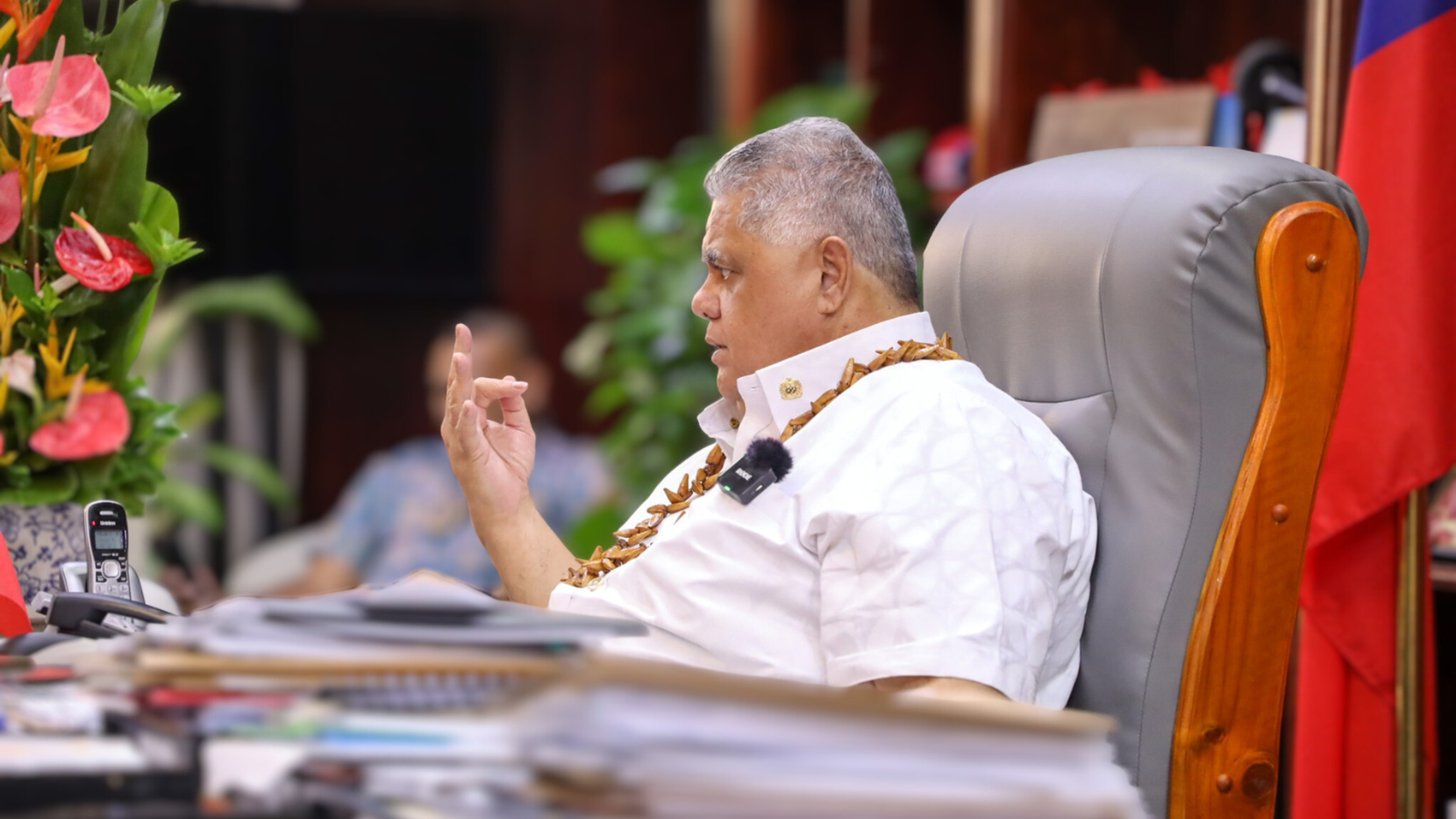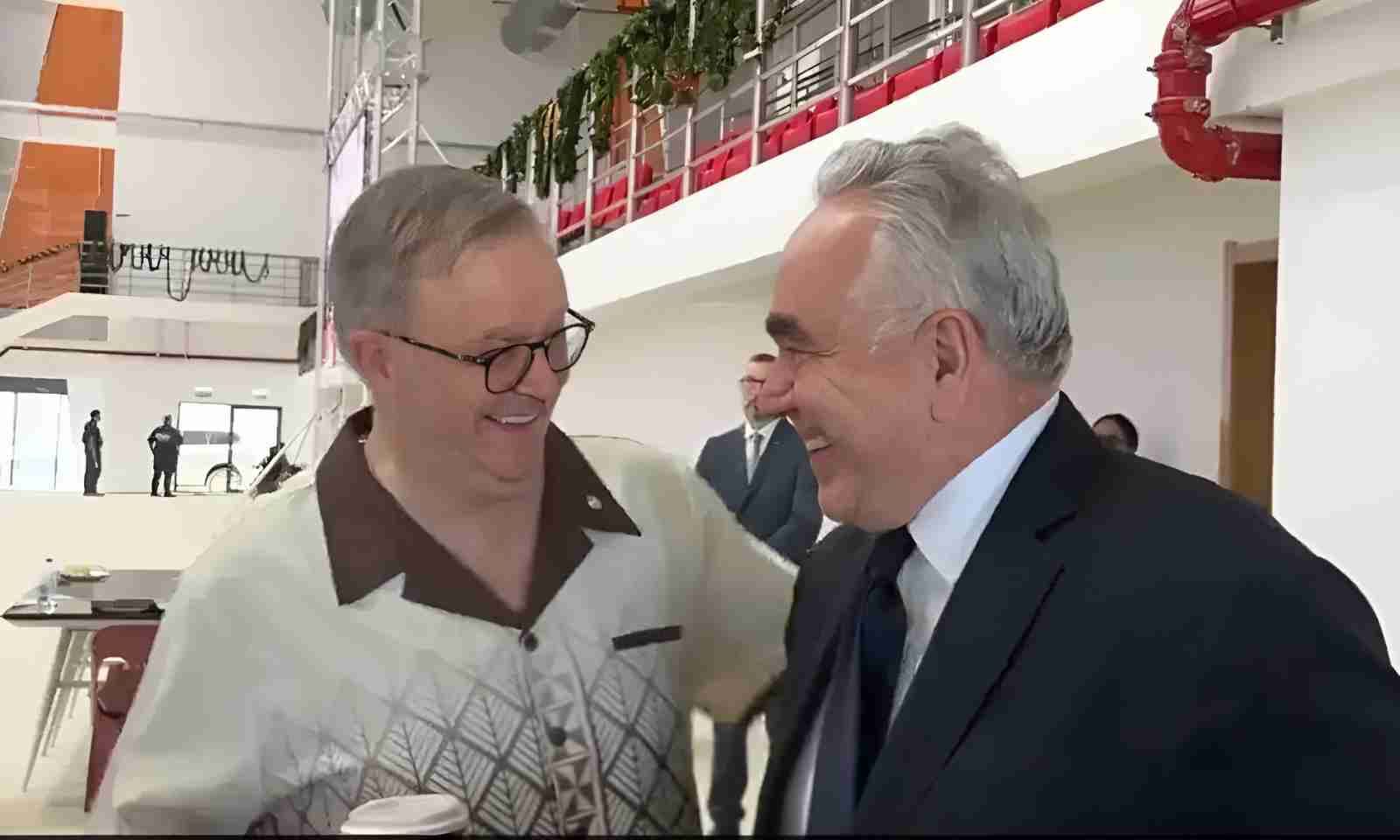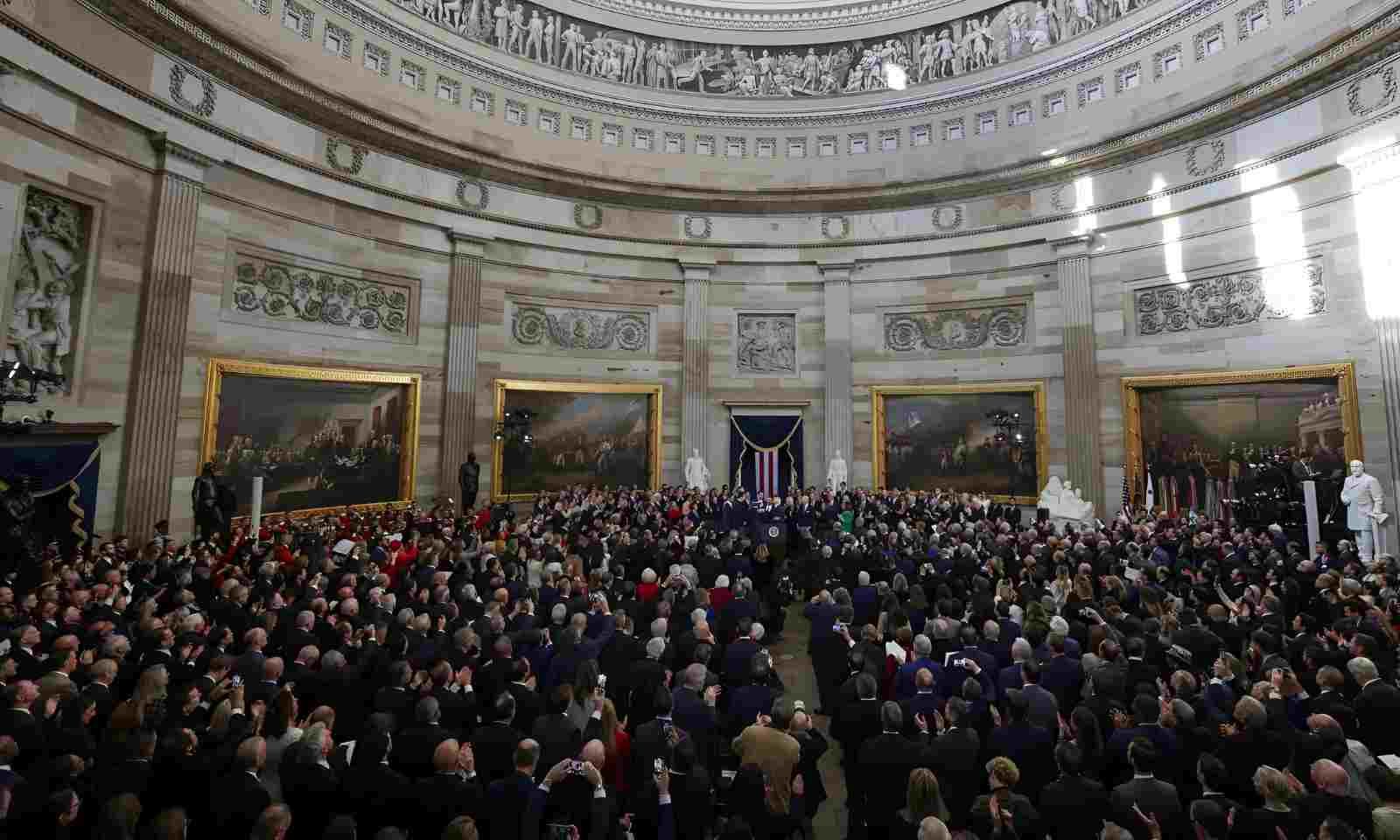

Donald Trump has been sworn in as the 47th President of the United States of America.
Photo/YouTube/CBS News
How Trump’s 'America first' policies could impact NZ and Pacific
From executive actions on climate and trade to a possible overhaul of US-Pacific relations, Donald Trump’s second inauguration marks a shift in US foreign policy.



From Kelston to Canterbury: Pasifika engineering student awarded scholarship

Cook Islands tax data show $39m tourism growth to $317m

From South Auckland to Waratahs: Family drives Moananu’s Super Rugby journey


Sāmoa Prime Minister’s conspiracy case ruling postponed again

From Kelston to Canterbury: Pasifika engineering student awarded scholarship

Cook Islands tax data show $39m tourism growth to $317m

From South Auckland to Waratahs: Family drives Moananu’s Super Rugby journey
Donald Trump has officially returned to the White House, but what does a second Trump administration mean for the Pacific and Aotearoa?
Trump's inauguration speech outlined plans to confront illegal immigration, reorganise federal policies under an “America first” umbrella, overhaul the country’s trade system, and implement foreign taxation and tariffs.
International Relations Expert Geoffrey Miller said some plans could take longer than expected.
“You can speculate as much as you like, but there's something inherently unpredictable about Donald Trump.
“It's hard sometimes to realise what bits are meant seriously, what bits are more hyperbole, exaggeration for effect, you simply don't know how much he's really going to enact,” Miller said.
“He's promising close to 100 executive orders, though, on his first day in office … and the US President does have a lot of power in many ways to sign these proclamations.
“[But] some of these declarations and these executive orders are going to be a bit toothless without the bureaucracy to back them up.”
World leaders, current and former US lawmakers, and heads of major US companies attended Trump's inauguration, which was held inside the Capitol Rotunda in Washington DC. Usually, the ceremony is held on the Capitol grounds, but this year, it was moved indoors due to the dangerously cold weather.
During his half-hour speech, the 47th President vowed to repeal climate change policies like the Green New Deal, rename significant landmarks, and end government policy that “socially engineer race and gender into every aspect of public and private life… [to] forge a society that is colour blind and merit-based”.
Pacific predictions
Miller said a transition of administration could take several months, but he admitted Trump’s approach to the Pacific region was unlikely to echo that of his predecessor.
“[Biden] started a new summit with Pacific Island states that was held in Washington each year after the UN General Assembly.
“It really remains to be seen whether Donald Trump is going to continue with that kind of inclusive approach - one would think probably not, because that's not the word that you tend to associate with Donald Trump - ‘inclusive’.”
Speaking to William Terite on Pacific Mornings, Miller said smaller Pacific states might have to consider their diplomatic ties to gain the superpower’s support in the future.
“I think he's going to be wanting countries to pay their way, and if you want to have US support [and] protection, you're going to have to do your bit.
“For many Pacific Island states, they're so small that they don't even have militaries. It's going to be harder to see what they're going to have to do.”
Watch Geoffrey Miller's full interview via 531pi’s FB below.
He says Trump is more likely to work with the “big players” and not engage with smaller Pacific nations unless needed.
“I think it will be easier for Donald Trump to sort of forget about large portions of the Pacific or only remember it when it's convenient to him and perhaps be less systematic in how he treats the Pacific, but we'll wait and see.”
Impact on crown and NZ relations
Amid Trump being sworn in, The Independent reported that King Charles privately congratulated Trump and said the United Kingdom remained open to a possible state visit.
As for Trump’s impact on New Zealand, Miller said the President’s potential approach could be seen in the US’ new Secretary of State, Marco Rubio, who had publicly supported AUKUS.
AUKUS is a security partnership between Australia, the United Kingdom, and the United States. Australian Prime Minister Anthony Albanese describes it as a way of promoting “a free and open Indo-Pacific that is secure and stable.”

Australian Prime Minister Anthony Albanese, left, and incumbent US Deputy Secretary of State Kurt Campbell at the Pacific Islands Forum leaders meeting in Tonga last August. Photo/RNZ Pacific
Miller predicted AUKUS would go ahead, but New Zealand’s entry price to join Pillar 2 of the agreement might be higher than previously expected.
“If New Zealand wants to join AUKUS, it's going to have to pay up big time in terms of spending on US military equipment.
“I think Donald Trump's going to say, ‘You're going to have to pay your way, there’s no free ride with us’.”
Miller said the former Biden administration was less concerned with how much New Zealand was spending and more focused on “New Zealand signing its name”.
“Yes, there was pressure on New Zealand to spend more, but I don't think it was quite the same way. It was quite an inclusive approach that Joe Biden took.
“So it sounds like AUKUS is going ahead, and that puts some questions back on New Zealand. What is New Zealand's position going to be when it comes to AUKUS?”

The ceremony was held in the Rotunda in Washington's US Capitol building. Photo/screengrab/SkyNews